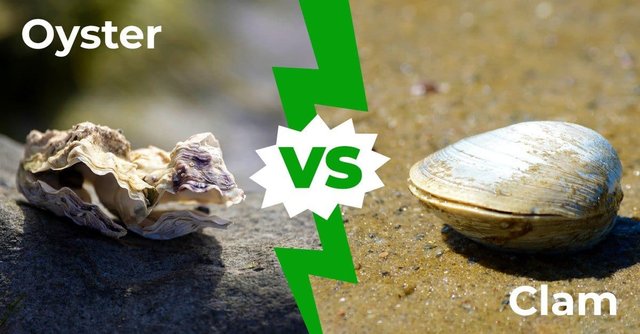Oysters vs. clams in literature:

The Walrus and the Carpenter, Lewis Carroll
"O Oysters, come and walk with us!'
The Walrus did beseech.
A pleasant walk, a pleasant talk,
Along the briny beach:
We cannot do with more than four,
To give a hand to each.'"
Christmas Carol, Charles Dickens:
"Oh! But he was a tight-fisted hand at the grindstone, Scrooge! a squeezing, wrenching, grasping, scraping, clutching, covetous, old sinner! Hard and sharp as flint, from which no steel had ever struck out generous fire; secret, and self-contained, and solitary as an oyster."
Barnaby Rudge, Charles Dickens:
"And yet here was this same Dolly Varden, so whimsical and hard to please that she was Dolly Varden still, all smiles and dimples and pleasant looks, and caring no more for the fifty or sixty young fellows who were breaking their hearts to marry her, than if so many oysters had been crossed in love and been opened afterwards."
Hypothesis: oysters are better than clams for writers because of their higher degree of quiddity. Neither the word nor the thing is easily encompassed by a formula. And great writers, while respectful towards formulai, are not captured by them either. I have a sort of feeling that Shakespeare and Melville also made use of oysters, though can't recall the passages.
You can confirm my hypothesis with other examples. Or you can contradict it with clams.